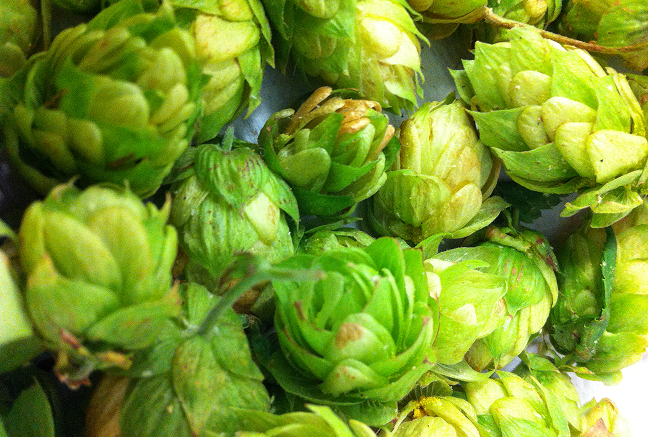Authors: Kaylyn R. Kirkpatrick & Thomas H. Shellhammer
Journal of the American Society of Brewing Chemists, (2018) 76:4, 247-256
DOI: 10.1080/03610470.2018.1546091
Abstract
Enzymes in hops have recently been demonstrated to hydrolyze beer dextrins, produce fermentable sugars in finished beer, and pose significant safety and quality challenges for brewers. In an effort to mitigate beer refermentation following dry-hopping in the presence of yeast and the effect of “hop creep,” brewers look to adjust recipes, selection of ingredients, and dry-hopping conditions. With phytochemical/secondary metabolite based flavor differences known to exist across hop cultivars, it was posited that there may also exist unique enzymatic activities based upon cultivar and that brewers may use these differences to guide their hopping practices. The enzymatic power of 30 hop cultivars was screened using specific enzyme assay kits (α-amylase, β-amylase, amyloglucosidase) on hops as well as quantifying via liquid chromatography the nonfermentable dextrin degradation and sugar production in beer dry-hopped with different hops. Differences across all cultivars were found and cluster analysis revealed groupings that were not based on pedigree, genetic makeup, or specific enzyme activities. The influence of growing and harvest practices, processing conditions, and presumably age post processing on hop enzymatic power warrants more investigation. These findings indicate that the choice of hop cultivar may influence the degree of refermentation in finished beer as a result of dry-hopping.
Discover more from Beer Learning
Subscribe to get the latest posts sent to your email.

